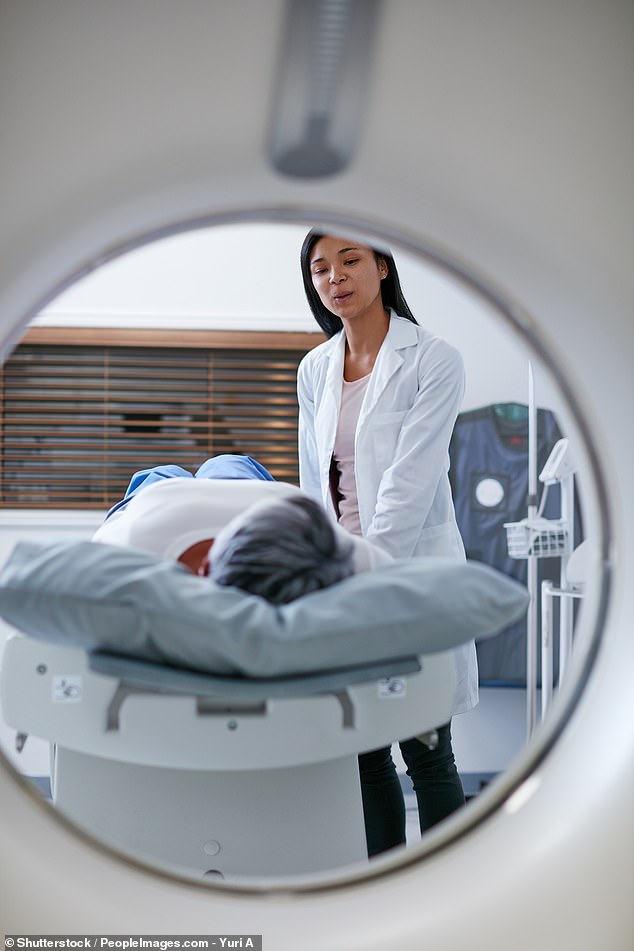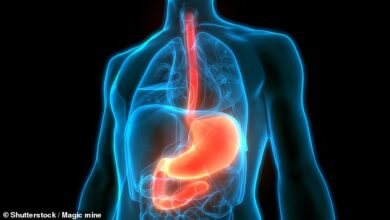Elderly patients nearing the end of their lives are being given unnecessarily stressful and risky scans, research shows





A study finds that elderly patients nearing the end of life are undergoing unnecessarily stressful and risky diagnostic scans.
Researchers say the wasteful checks also lead to higher costs for the NHS, longer hospital stays and delays in access to scanners for people who still have many years to live.
The findings reflect a growing national trend toward medicalization and under-recognition of dying, the experts add, with many doctors ordering scans out of fear of litigation, rather than based on clinical need.
More than a quarter (28 percent) of hospital admissions in England between September 2021 and 2022 were in patients aged 75 and over, and more than a third (35 percent) occurred in their last year of life.

Elderly patients nearing the end of life are being given unnecessarily stressful tests and scans (stock image)

There is little evidence to support the benefits of these studies in this group of patients, said study leader Dr. Joseph Hawkins (stock image)
Since 2013, overall imaging activity in England has increased, with 44 million radiology procedures performed in 2021/22, around one in five of which were in patients aged 75 or over.
However, there is little evidence to support the benefits of these trials in this group of patients, said study leader Dr Joseph Hawkins, a consultant in palliative care at Ashford and St Peter’s Hospitals NHS Trust.
To strengthen the evidence base, his team examined the clinical records of one in four patients who died aged 80 or older after being admitted to hospital in the south of England between July and December 2021.
Of the 96 patients admitted, the average age at death was 88.
In the last six months of their lives, this group underwent 389 X-rays, 92 ultrasound scans, 192 CT scans and six MRI scans.

Nearly a third (30 percent) of people aged 90 and older underwent six to nine radiological procedures (stock image)

there are costs to an already overstretched health service, with estimated costs for the 96 patients totalling around £102,000 (stock image)
Nearly 28 percent underwent six to nine procedures and 26 percent underwent 10 or more, according to findings published in the journal BMJ Supportive & Palliative Care.
Nearly a third (30 percent) of people aged 90 and older underwent six to nine radiology procedures, with the highest number of ten or more performed in 43 percent of those aged 80 to 85.
The researchers said: ‘These results raise questions about the true utility of radiological examinations in this patient group.
It is estimated that between 20 and 50 percent of advanced imaging scans do not provide additional information to improve patient outcomes.
‘Furthermore, the motivation for requesting imaging is not always focused solely on diagnostic benefit. It has also been shown that scans are sometimes requested out of fear of medico-legal consequences or as a result of patient expectations.’
These procedures are not without risk, the researchers warn.
This includes the stress the patient experiences, the need for sedatives and the longer time he or she has to spend in hospital, which increases the risk of infections and falls.
There is also the cost to the already overstretched health service, with the estimated cost for the 96 patients totalling around £102,000, they add.
‘We suspect that the lack of sufficient attention to the importance of recognizing dying and managing subsequent conversations is at the heart of these clinical management missteps, leading to a burden of overresearch for both patients and health care systems,’ the researchers conclude.




